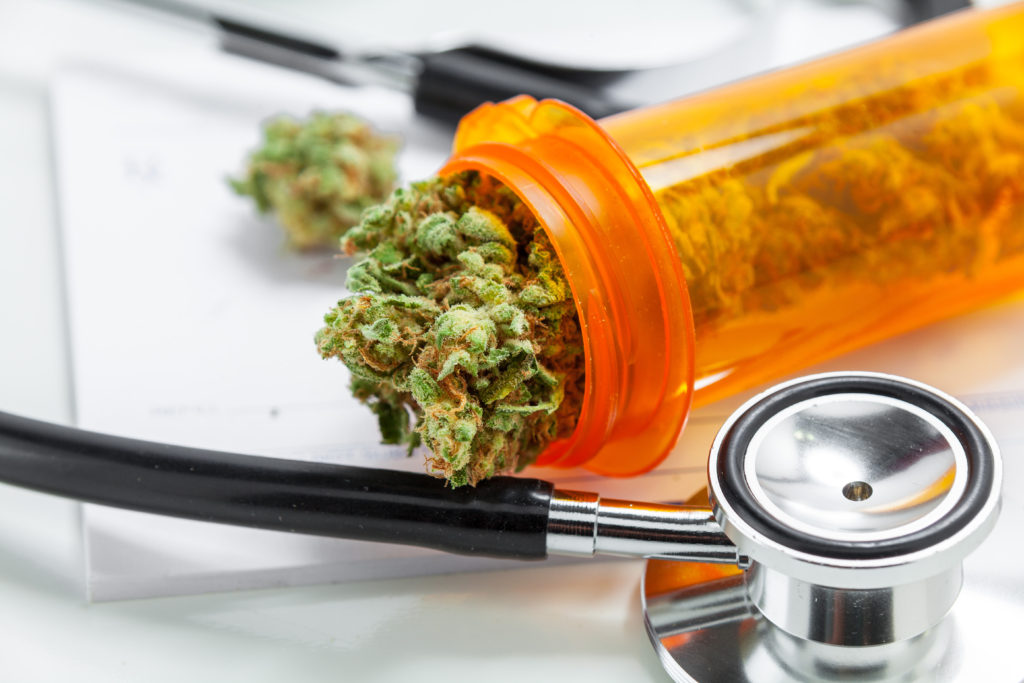The D.C. Council on Tuesday unanimously approved an emergency bill that aims to bolster the District’s medical cannabis program by easing restrictions on its patients.
The measure, proposed last week by Council Chairman Phil Mendelson, extends the validity of patient registrations, creates two-year medical cannabis cards, doubles the amount of cannabis patients can legally carry and allows patients to sign up with just one proof of residency.
Mendelson on Tuesday said he introduced the bill to address a precipitous drop in registrations for the medical cannabis program, which fell from 12,000 to 5,500 over the last few months. The program’s struggles, he said, are due both to burdensome regulation on the medical industry and to unfair competition from D.C.’s many unpermitted cannabis businesses — also known as “gifting” shops.
“Besides the fact that these businesses in the illicit market are using a gifting scheme, which is not legal under the law, the problems with these shops are manifold,” Mendelson said.
He said “gifting shops” don’t test their weed products, don’t pay sales tax and pose a public safety threat because they don’t have security to prevent burglaries or the diversion of cannabis to minors.
“We’ve seen instances of robberies, burglaries and even shootings not just at pop up events, but related to illegal storefronts,” he said. D.C. Police Chief Robert Contee has tied the city’s recent uptick in crime to unpermitted cannabis shops, though advocates and legal experts say the accusations are unfounded.
Initially, Mendelson’s bill contained a slew of provisions that would have given District authorities more power to crack down on gray market shops and delivery services. But after a public outcry from advocates and business owners, the council chairman scrapped the enforcement part of his bill, keeping only provisions that eased regulations on the medical cannabis industry.
Still, Mendelson told his council colleagues on Tuesday that civil penalties and fines against gray market businesses remain on the table, and that he would “continue to work on that and probably come back to it.”
“To put it bluntly, we need enforcement,” he said, adding that police raids against gray market businesses, which sometimes lead to criminal charges against employees, are “not an effective approach.”
Ward 4 Councilmember Janeese Lewis George said she was concerned that the now-scrapped enforcement part of Mendelson’s bill were proposed without public feedback, and could have an adverse effect on D.C.’s Black community. She said she looked forward to a Racial Equity Impact Assessment (REIA) of those provisions.
“I think the process really matters here, especially given that the criminalization of marijuana has disproportionately harmed Black Americans nationwide,” Lewis George said.
She added that the council’s current push to legalize recreational weed sales is “a unique opportunity to use this product to empower black Washingtonians” and that any enforcement against unpermitted businesses should be considered carefully. The council is gearing up for a hearing on legalizing the recreational market on Nov. 19.
“Let’s go about this the right way, the transparent way, and with plenty of public input,” Lewis George said.
Ward 8 Councilmember Trayon White echoed Lewis George’s concerns about cracking down on unpermitted businesses, and that the council should find a “happy medium” when it comes to enforcement against the gray market.
“A lot of black and brown businesses would be adversely affected by us doing an emergency action without hearing or understanding all aspects,” he said.
At-Large Councilmember Elissa Silverman, who often butts heads with Mendelson, backed his concerns on Tuesday about gifting shops selling untested products and creating a safety risk for D.C. residents.
“A lot of these illegal pop-ups are right near my house,” she said. “My neighbors and I deal with them.”
She said the council shouldn’t dismiss comments by D.C. Police Chief Robert Contee that tied D.C.’s rise in crime to unregulated cannabis shops..
“It’s not a stretch to think that an all cash business that is unregulated is a good target for crime and for people taking advantage of that and people can get hurt,” Silverman said.

